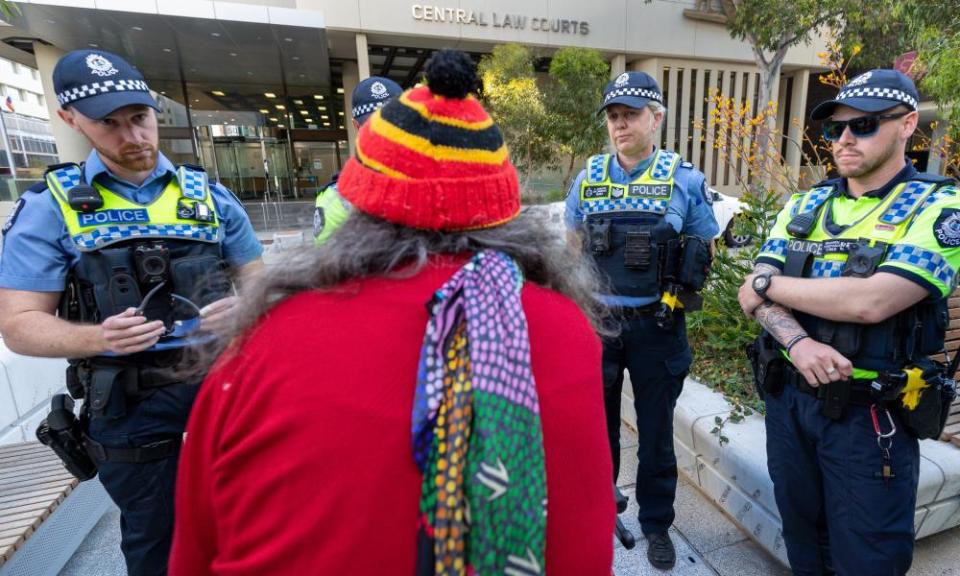‘Disgusted’: family of JC, Aboriginal woman shot dead by police, plan national protests

The family of a Geraldton woman fatally shot by a Western Australian police officer say they “feel disgusted” after he was acquitted of murdering the Indigenous woman and are planning a national day of protest.
The officer was found not guilty of murder or the lesser charge of manslaughter over the shooting death of the 29-year-old, known as JC for cultural reasons, in the WA supreme court on Friday.
Her family have spoken out, saying they feel JC was put on trial for her own death. “I feel disgusted, it disgraced me, it hurt me,” said her sister, Bernie Clarke.
“It didn’t just shatter me, it shattered the nation.”
Related: Police officer who shot dead Indigenous woman on WA street found not guilty of murder
The constable who was acquitted of murder was the first WA police officer to face a murder charge for a death in custody in 93 years.
He was one of eight police officers who attended the scene after a member of the public called, reporting a woman on the road with a knife.
Only three of the officers had left their vehicles and the constable was the only one to draw a gun.
JC, a mother of one, had experienced significant mental health and drug problems and had recently been released from prison.
The constable testified that he had acted in self-defence, saying JC had turned towards him and raised the knife before he pulled the trigger.
The defence lawyer Linda Black said her client had acted correctly by drawing his gun, rather than a Taser, when confronting a person armed with a knife.
She said the officer had never fired his gun while on duty and had less than a second to decide whether to pull the trigger, given his proximity to JC.
“He was not some trigger-happy constable ... he was a brave and careful officer who took pride in his job,” Black said.
The jury was shown CCTV footage, taken from a home about 65 metres away, of JC being shot while surrounded by police vehicles.
The director of public prosecutions, Amanda Forrester SC, argued that the footage showed JC did not move towards the officers. The defence said the footage was not clear enough to make out the movement of people’s arms.
After a three-week trial the jury, which had no Aboriginal members, deliberated for three hours before finding the constable not guilty of murder or manslaughter.
Clarke said JC’s death was another example of there being “no justice and no accountability”.
At least 474 Aboriginal and Torres Strait Islander people have died between the royal commission into Aboriginal deaths in custody in 1991 and 2020, and not one police or corrections officer has been convicted for these deaths.
“We know that a court can never bring JC back but we had hoped to see justice done for her, and to grieve and heal,” Clarke said.
The family are holding a national day of action on Thursday, with rallies across the country.
They are asking governments to establish independent investigations into all deaths in custody, to support, resource and fund Aboriginal healing centres, and to address systemic and structural racism in the justice system, including jury bias and representation.
A Human Rights lawyer and Noongar woman, Dr Hannah McGlade, said Australia “must stop this violence to Aboriginal women”.

 Yahoo Finance
Yahoo Finance 